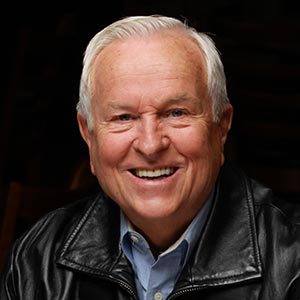What is an Evangelical?

You’ve probably seen it in the polls—“this percent of Evangelicals support this candidate, or that legislation.” But with researchers defining “Evangelical” in various ways, the results can be as inconsistent as they are broad.
The National Association of Evangelicals, along with a diverse group of theologians, researchers, Evangelical leaders and sociologists, think Evangelicals must be defined by their beliefs. Not by which church they attend, their political demographics, or how they identify themselves.
Real Evangelicals Believe These 4 Things
BY SAMUEL SMITH , for the Christian Post
Researchers should define Evangelicals by their beliefs, not by their political demographics, the church they attend or what they self-identify as, the National Association of Evangelicals, LifeWay Research and a group of sociologists, theologians and Evangelical leaders have determined.
After a two-year collaboration, NAE and the Christian research organization LifeWay Research have developed a standard definition for what it means to be an Evangelical.
Tired of numerous surveys and polls holding inconsistent definitions of what they consider to be Evangelicals, NAE announced Thursday that its board of directors adopted an “Evangelical beliefs research definition” at its Oct. 15 meeting in hopes it will lead to researchers using an accurate definition to define Evangelicals.
“Evangelicals have been misunderstood and categorized incorrectly so often, and much of that is due to inconsistent identification in research,” NAE President Leith Anderson said in a statement shared with The Christian Post. “Now we have a way to measure Evangelical belief with confidence.”
NAE called on LifeWay Research to help develop an accurate manner to define Evangelical beliefs. The organizations gathered input from a “diverse group” of theologians, Evangelical leaders and sociologists, who designed and tested 17 questions that would help define Evangelicals.
The organizations were able to narrow down the 17 questions into four fundamental statements that believers must hold to be true in order to be considered real Evangelicals.
Ed Stetzer, executive director of LifeWay Research, said the four statements closely match David Bebbington’s classic four-pronged definition of Evangelicalism, but with more of an emphasis on belief rather than behavior.
Those statements are:
- The Bible is the highest authority for what I believe.
- It is very important for me personally to encourage non-Christians to trust Jesus Christ as their Savior.
- Jesus Christ’s death on the cross is the only sacrifice that could remove the penalty of my sin.
- Only those who trust in Jesus Christ alone as their Savior receive God’s free gift of eternal salvation.
“Evangelicals are people of faith and should be defined by their beliefs, not by their politics or race,” Anderson argued.
Researchers have generally used two methods to identify Evangelicals in their surveys and polls.
According to NAE, self-identification and denominational affiliation are to the most common ways Evangelicals are identified in research, while political demographics are used instead of religious characteristics in other surveys.
“Though the African-American Protestant population is overwhelmingly Evangelical in theology and orientation, for example, it is often separated out of polls seeking to identify the political preferences of Evangelicals,” the NAE said.
Although the four statements aim to help make research on Evangelicals more consistent, LifeWay Research Vice-President Scott McConnell acknowledged that those who agree with all four statements are not the only Evangelicals.
“We’re not saying these are the only Evangelicals, but we are saying this will define someone as having Evangelical belief,” McConnell said in a statement shared with CP.
After coming up with the four statements, LifeWay conducted a phone survey from Sept. 8 through Sept. 21 and polled about 1,000 random telephone respondents with a margin of error of +/- 3.7 percent.
“LifeWay Research confirmed the statements are statistically valid, reliable, and form a valid scale, testing them in online and phone surveys,” the statement added
Stetzer explained that people who strongly agreed with one statement tended to strongly agree with the other three. Stetzer said the results indicate a measure of a “theological package” of Evangelical beliefs.
“This simple set of four questions reliably discerns those who share Evangelical beliefs from those who do not,” Stetzer asserted.
While 52 percent of respondents strongly agreed that the Bible is their highest authority, 58 percent strongly agreed that Jesus’ death is the only sacrifice that can remove the consequence of sin. The survey also found that about as many people who strongly agree that it is important for them to encourage non-Christians to turn to Christ (49 percent), also strongly agreed that those who only trust in Jesus as their Lord and Savior can be saved (48 percent).
They also found that only about three out of 10 Americans fit the research definition of Evangelical.
Additionally, they found that only 59 percent of Protestants who self-identify as Evangelicals agree with all four statements. Only 25 percent of African-Americans who hold Evangelical beliefs consider themselves Evangelical Christians, while 62 percent of whites who hold Evangelical beliefs consider themselves Evangelicals. Seventy-nine percent of Hispanics who hold Evangelical beliefs consider themselves to be Evangelicals.
“Identity, belief and behavior are three different things when it comes to being an Evangelical,” McConnell said. “Some people are living out the Evangelical school of thought but may not embrace the label. And the opposite is also true.”














